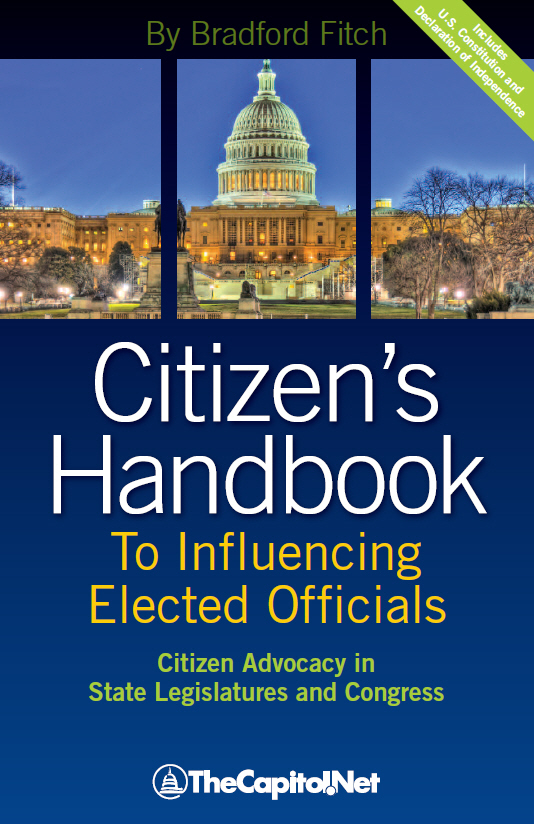When you attempt to influence a group of people, it is important to develop an understanding of the environment in which that group operates. Congressional and state legislative environments differ from other environments, including private and public workplaces. Learning to appreciate those differences as well as the inherent characteristics that are unique to legislative environments can provide you with an increased chance for successful grassroots advocacy.

One of the most common mistakes of citizen advocates is viewing legislatures through their own work environment. While it is true that Capitol Hill can resemble a group of independent small businesses, Congress has a definite hierarchical nature. Understanding that nature of Capitol Hill is essential to your success in achieving your goals and outcomes.
Constituents play a critical role on Capitol Hill, driving almost all decision making within congressional offices. The American system of government is set up in a manner in which legislators are first and foremost beholden to those they represent. Rules of the House and Senate reinforce this association by legally prohibiting members of Congress from spending their office budgets on behalf of non-constituents.
Two types of constituents interact with legislators: those who have an interest and those who have an opinion. Members of Congress rarely accept meetings with non-constituents. This can be quite frustrating for a group with no constituent connection that wishes to influence a member.
If you want to influence a member of Congress that does  not represent you, your best opportunity is to have your own legislator work on your behalf to influence that member.
not represent you, your best opportunity is to have your own legislator work on your behalf to influence that member.
Constituents also play a prominent role in setting the daily agenda for legislators. Any constituent that makes the effort to actually travel to Washington or even to write their member of Congress will almost always receive a meeting or some type of response.
Ultimately, your efforts to persuade any member of Congress depend upon your constituent connection to that member of Congress or your ability to have that member’s constituents make an effort to reach them. Without that association, your efforts may very well come to naught.
Reference: Citizen’s Handbook, by Bradford Fitch, Part 1 How Government Really Works
For more than 40 years, TheCapitol.Net and its predecessor, Congressional Quarterly Executive Conferences, have been teaching professionals from government, military, business, and NGOs about the dynamics and operations of the legislative and executive branches and how to work with them.
Our custom on-site and online training, publications, and audio courses include congressional operations, legislative and budget process, communication and advocacy, media and public relations, testifying before Congress, research skills, legislative drafting, critical thinking and writing, and more.
TheCapitol.Net is on the GSA Schedule, MAS, for custom on-site and online training. GSA Contract GS02F0192X
TheCapitol.Net is now owned by the Sunwater Institute.
Teaching how Washington and Congress work ™

